All products featured are independently chosen by us. However, SoundGuys may receive a commission on orders placed through its retail links. See our ethics statement.
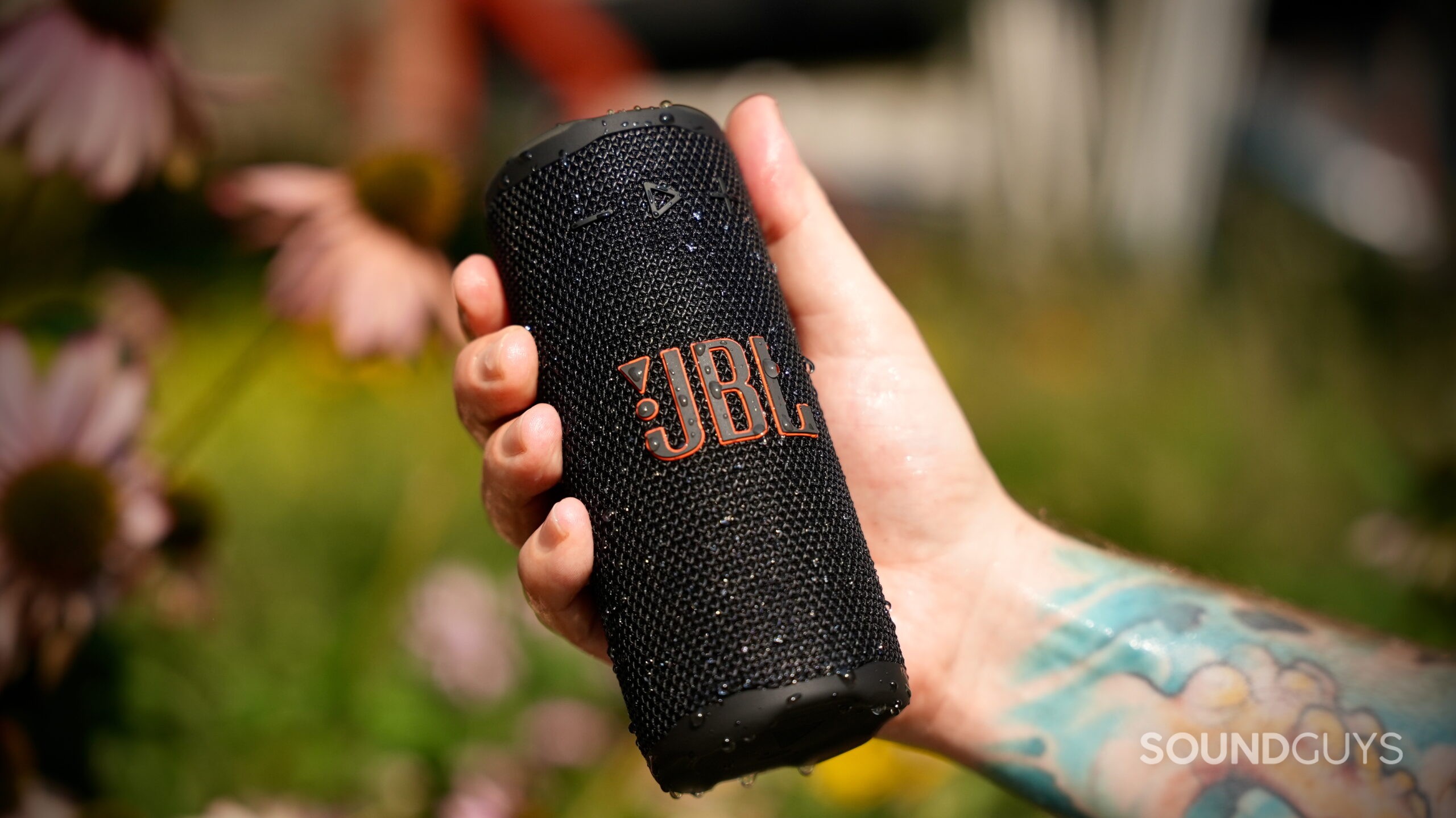
JBL Grip review: JBL’s lineup didn’t need this, but I’m glad it’s here
September 28, 2025
JBL Grip
Weight: 385g
The JBL Grip is a brand-new, ultra-portable Bluetooth speaker with a vertical design that sets it apart from JBL’s other compact models. It offers the usual features—rugged build, water resistance, and what JBL calls “bold JBL Pro Sound”—but also adds a rear LED light strip for extra flair. So, is this new mini speaker worth a spot in your bag? Let’s crank up some tunes and find out in this JBL Grip review.
This is the first version of the article. Updates will follow as the market changes.
The JBL Grip is for any listener who wants an ultra-portable Bluetooth speaker that won’t take up much room in a backpack, can easily be clipped onto a bag, or can even be used as a small desktop speaker at home for personal listening.
What’s it like to use the JBL Grip?
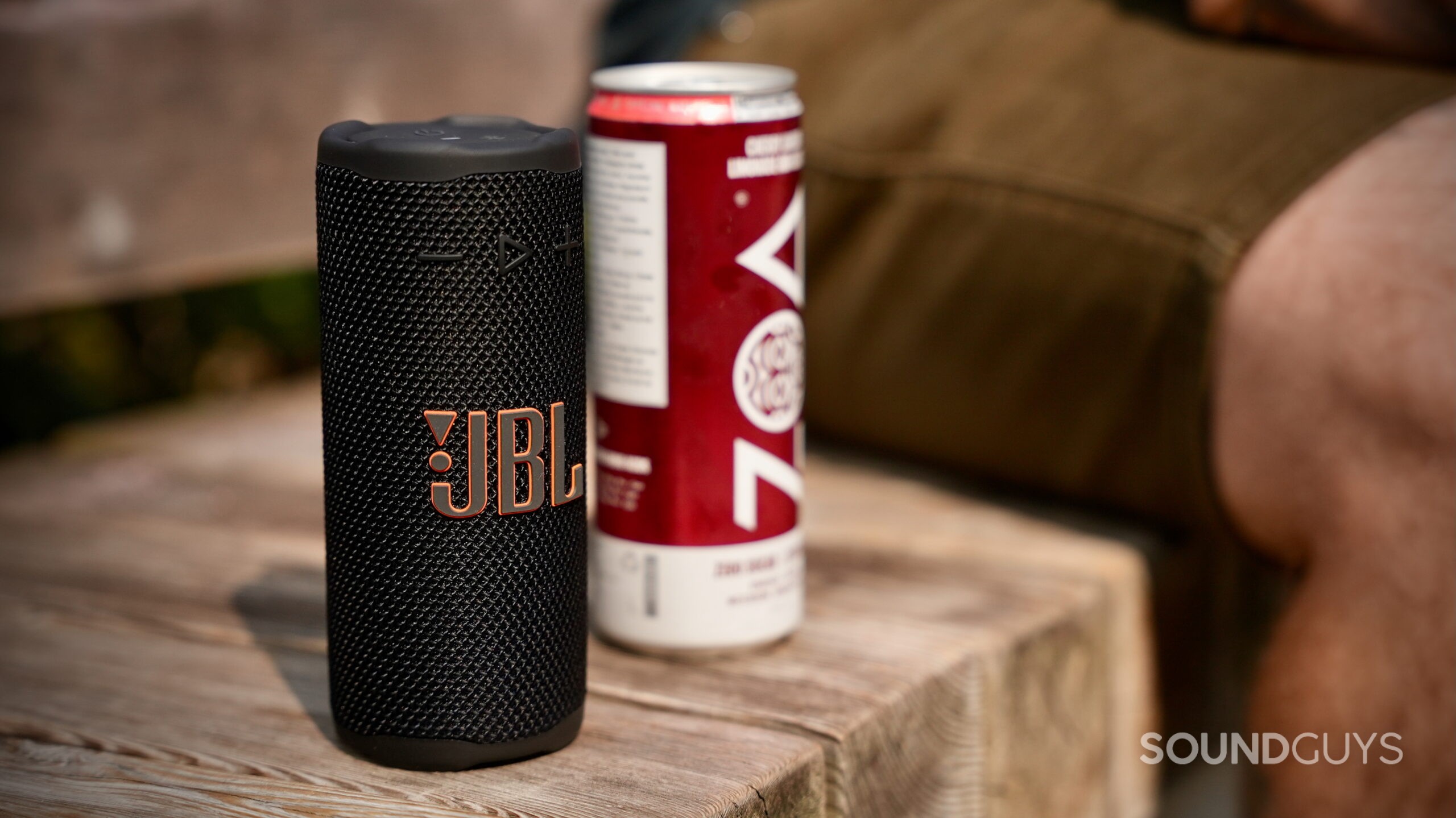
Living up to its name, the JBL Grip is the company’s first upright ultra-portable speaker. It’s shaped like an energy drink can and built for easy grab-and-go listening. At 385 grams, it sits between the smaller JBL Clip 5 (285 grams) and the larger Flip 7 (585 grams). Whether that gap needed filling is still up for debate.
As expected, the Grip sticks to JBL’s familiar design cues. It’s wrapped in durable fabric, has an IP68 rating for dust and water resistance, and features a “drop-proof” build that’s ready for beach days, camping trips, or wherever your afternoon takes you. Bonus points to the cylindrical design: This thing easily slides into a backpack or small bag.
You get the usual raised playback controls, while the Power, Bluetooth, and Auracast buttons are located on top of the enclosure. Around back, there’s a small loop as an attachment point (carabiner sold separately). However, what’s going to catch your eye is the built-in ambient lighting strip. It’s easy to see even in daylight, and you can manually change its colors and brightness via the button below or through the JBL Portable app.
Now, before we get too far into this review, let’s remember that the Grip is clearly meant to be a fun, grab-and-go speaker for when it’s you and a few friends. It’s a mono, 16W, directional speaker with a single 43 x 80 mm full-range driver. This is not a unit built for critical listening. It’s designed to enhance the fun times with your pals on your next adventure, whether it’s a late-night bike ride or a Sunday at the beach, without weighing down your bag.
| Action | Power button | Bluetooth button | Auracast button | Volume - | Play / Pause | Volume + |
|---|---|---|---|---|---|---|
| Action 1x Press | Power button Power on / off | Bluetooth button Enter pairing mode | Auracast button Enable Auracast | Volume - Volume down | Play / Pause Play / Pause | Volume + Volume + |
| Action 2x Press | Power button | Bluetooth button | Auracast button | Volume - | Play / Pause Skip track | Volume + |
| Action 3x Press | Power button | Bluetooth button | Auracast button | Volume - | Play / Pause Previous track | Volume + |
What are the key features of the JBL Grip?
The JBL Grip works with the JBL Portable app, which includes all the same features found across the rest of the lineup. I recommend downloading it, since the app gives you access to lighting controls, EQ settings (including a customizable 7-band EQ), and tools to manage any other Auracast-connected JBL speakers. Because this is a brand-new speaker, we’ll likely see firmware updates soon after launch, so it’s not a bad idea to keep the Portable app installed to ensure you’re always getting the most out of the Grip.
How does the JBL Grip connect?
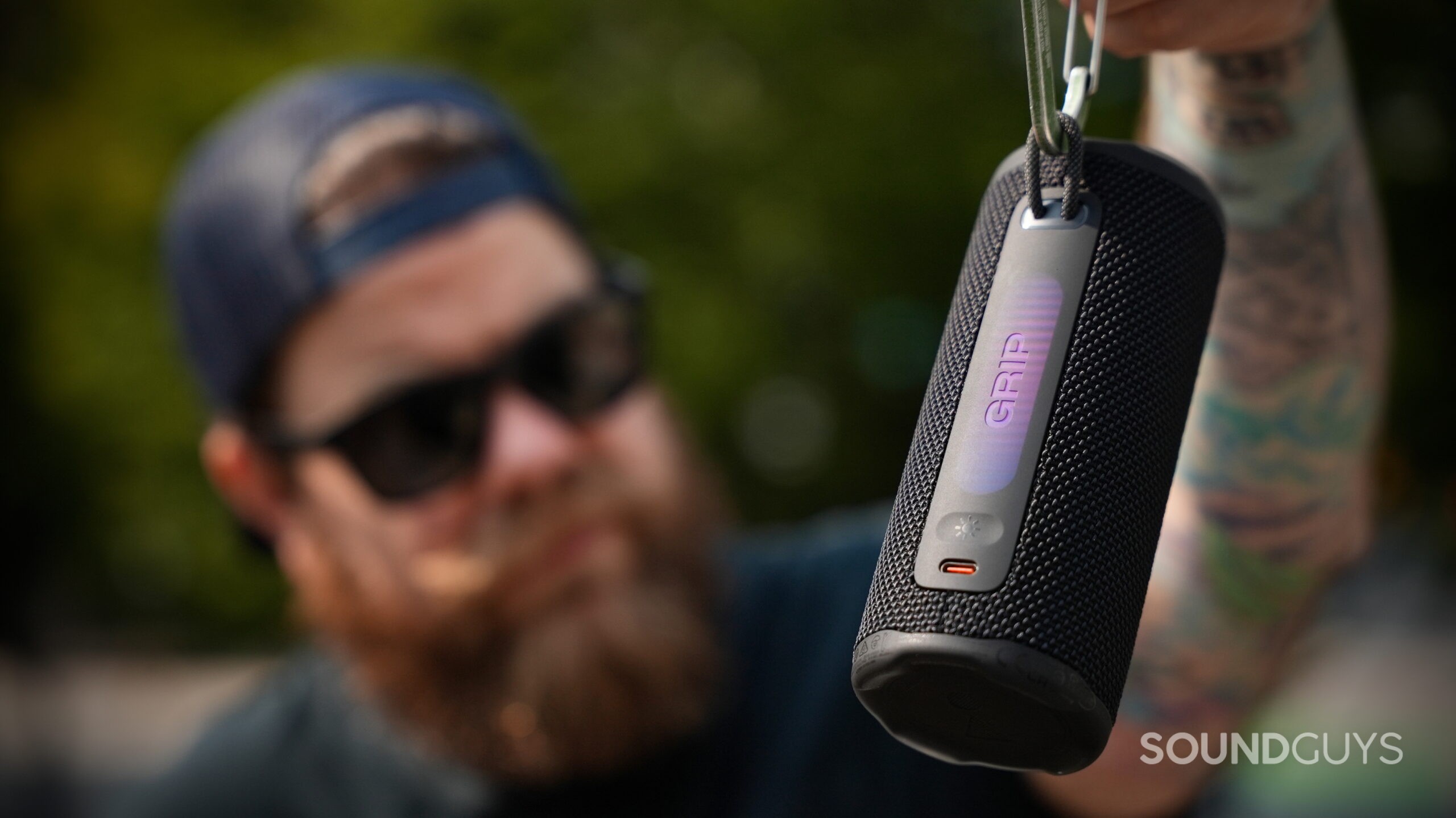
The JBL Grip connects to your device via Bluetooth 5.4 and supports both the SBC and AAC codecs. Additionally, it’s Auracast-ready, meaning it can connect with any other current JBL speakers, such as the Charge 6, Flip 7, Clip 5, Go 4, and the Xtreme 4.
It’s worth noting that the Grip can’t connect to older models that still rely on PartyBoost, such as the Charge 5 and Flip 6, and you’ll still need to pair an identical model for true stereo performance.
Pairing the JBL Grip is easy and follows the usual steps.
- Power on the Grip and press the Bluetooth button
- Open Bluetooth settings on your device
- Select “GRIP”
How long does the JBL Grip’s battery last?
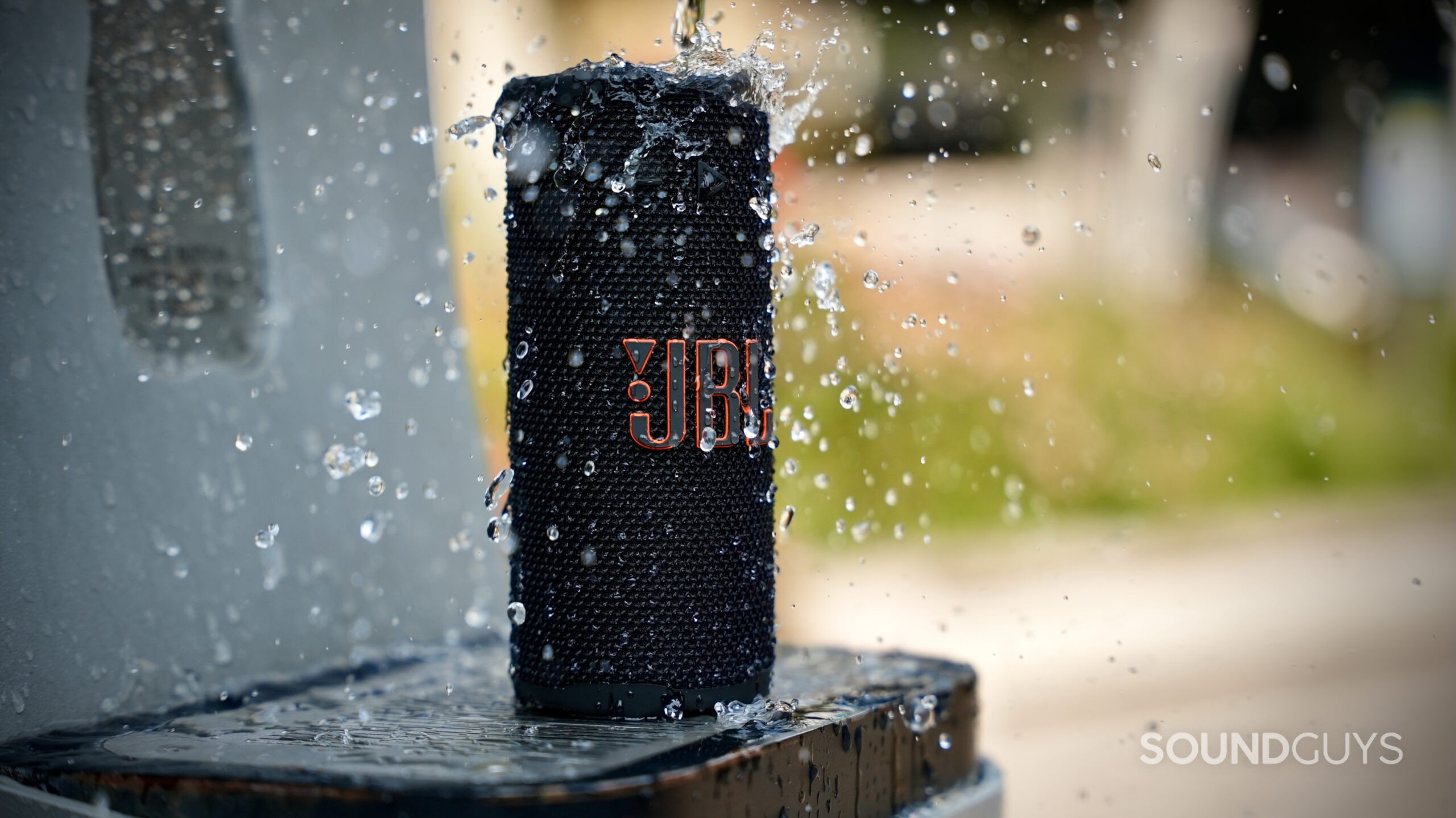
JBL says the Grip lasts up to 12 hours on a charge or up to 14 hours if you enable “PlayTime Boost” in the app. The catch is that PlayTime Boost just cuts back the bass to ease the load on the driver. It can give you more playtime but doesn’t sound very good. It’s kind of like a podcast EQ setting—no bass and mostly mids.
In my testing, I pushed the Grip harder than JBL probably does. Playing it at a steady 80dB from one meter away, which is about the volume you’d use at a small to medium-sized hangout, the battery drained quickly. With the lights on, it lasted only 1 hour and 45 minutes, and with the lights off, about 1 hour and 55 minutes. That’s nowhere near JBL’s claims, but you’ll get much closer to the advertised 12 hours at more typical desk listening levels or casual use.
When it’s time to recharge, the Grip uses USB-C and takes around 3 hours to fill up completely. Think of it as a day speaker that can handle a picnic, beach trip, or workday, but not an all-weekend party without a charger nearby.
How does the JBL Grip sound?
The JBL Grip sounds surprisingly detailed for a speaker of its size.
Reviewer’s notes
Editor’s note: This review uses a hover-enabled glossary to describe sound quality based on a consensus vocabulary. You can read about it here.
We are awaiting the MDAQS results for the JBL Grip. Please check back soon!
No. The JBL Grip does not feature a built-in microphone for taking phone calls.
Should you buy the JBL Grip?
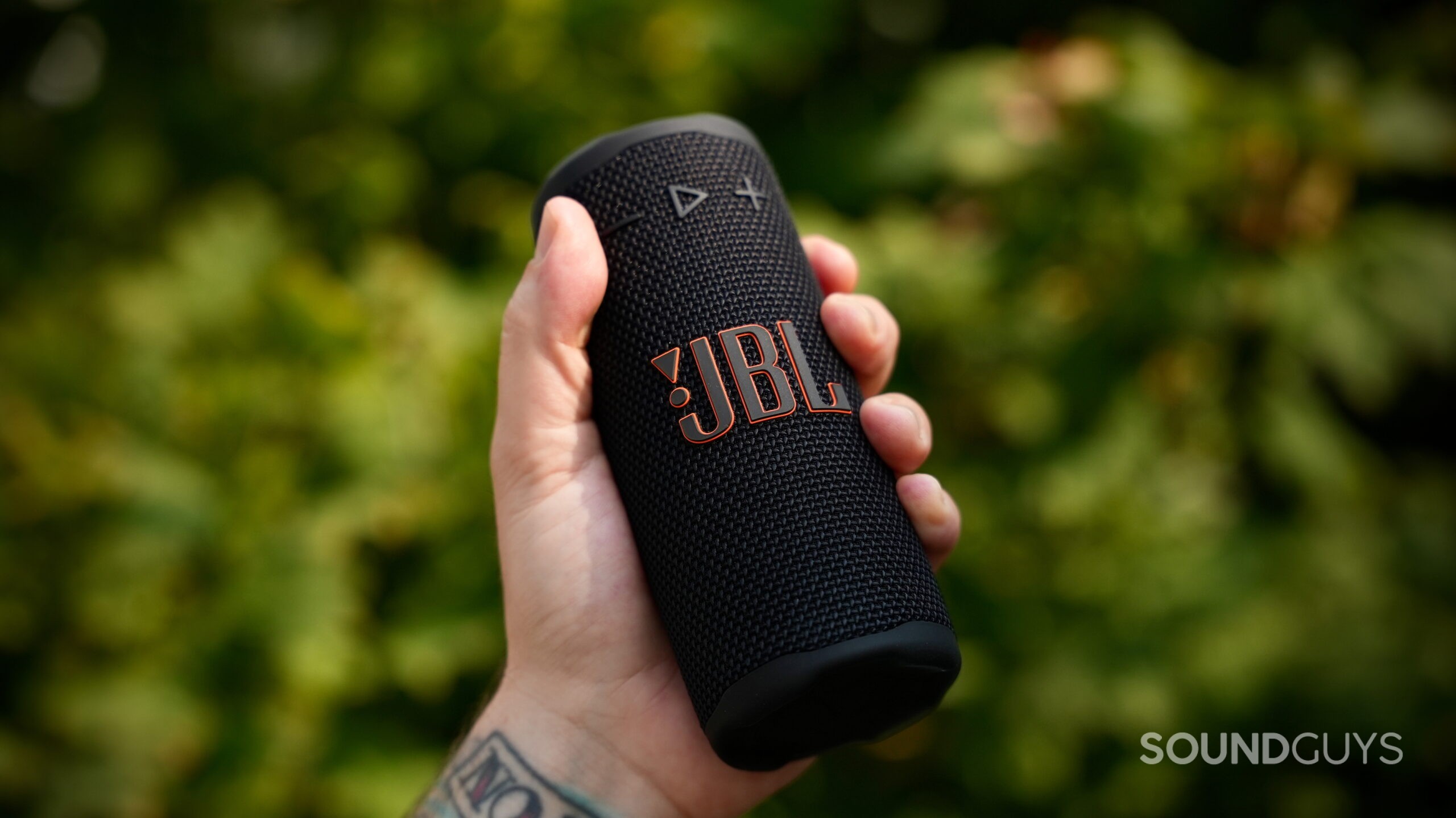
The JBL Grip is a welcome surprise in the company’s crowded portable lineup. At first, it seemed unnecessary wedged between the Clip 5 and Flip 7, but after spending time with it, the Grip proves its worth. It delivers a fuller, more balanced sound than the Clip 5, with a much fuller low-end and clearer highs, and it does so in a lightweight, ultra-portable form factor. The added lighting effects and full app support give it extra personality, making it more fun than your average travel speaker.
That said, you’ll need to temper expectations. The Grip won’t match the power or low-end punch of the Flip 7, and its battery life falls short if you’re blasting music with the lights on. Still, for casual outdoor hangs, desk listening, or tossing in a bag for a day trip, it’s hard to fault what JBL has pulled off here.
If you want the smallest JBL speaker that actually sounds good, the Grip is it.
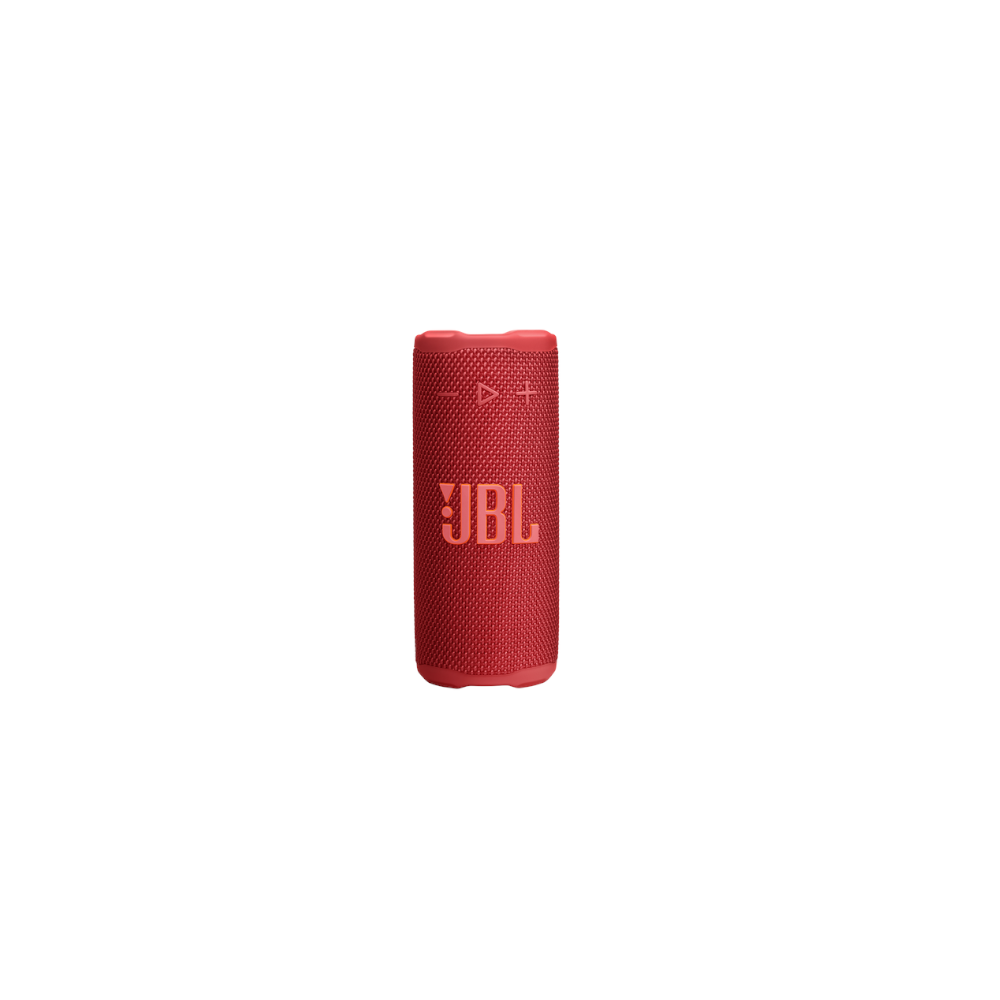
What should you get instead of the JBL Grip?
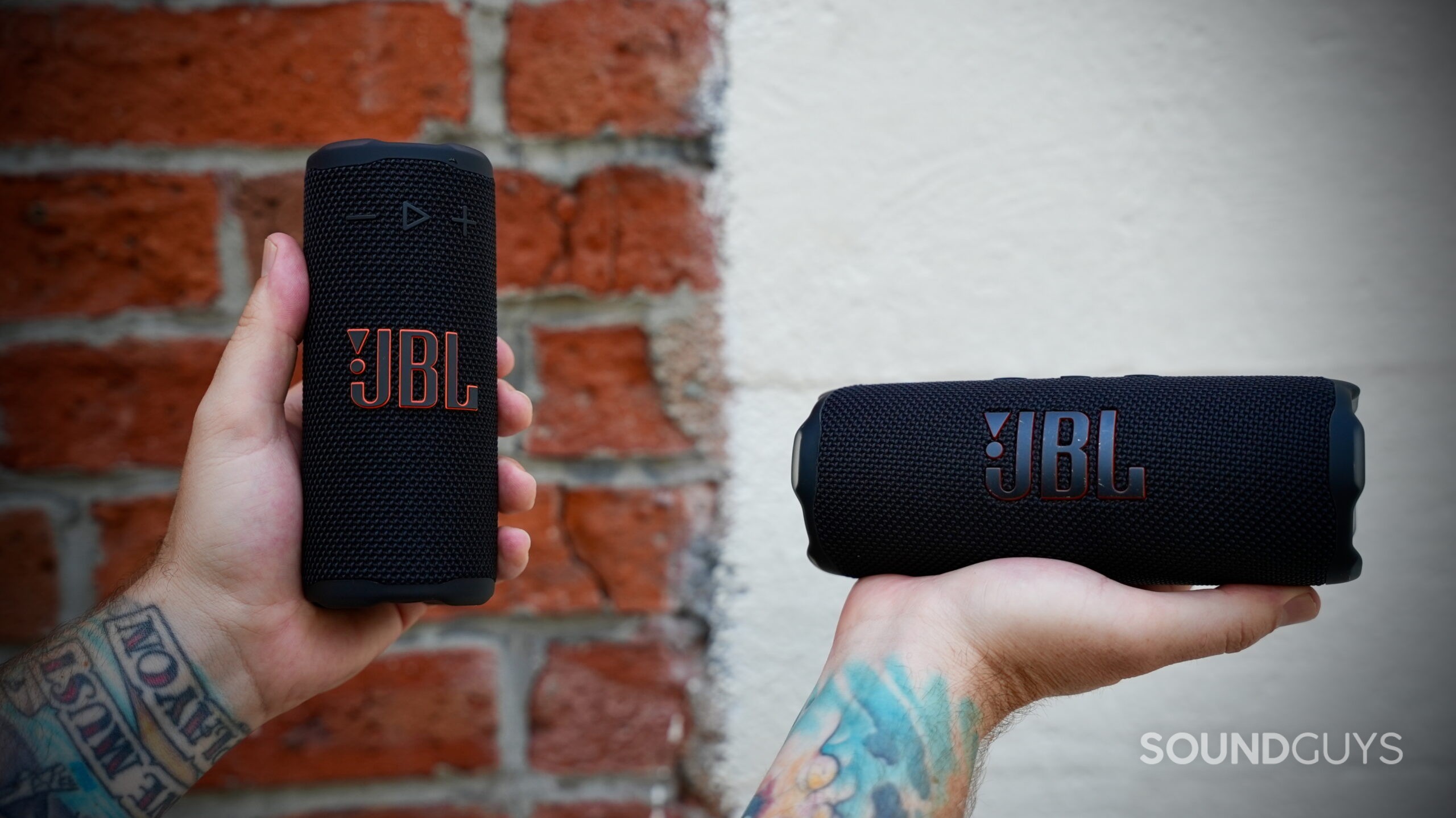
If you like the idea of the Grip but want more output and stronger bass, consider spending a little more and stepping up to its larger sibling, the JBL Flip 7. It offers the same durable build and customizable sound, while still being compact enough to toss in a bag. Snag one for $99.95 at Woot!.
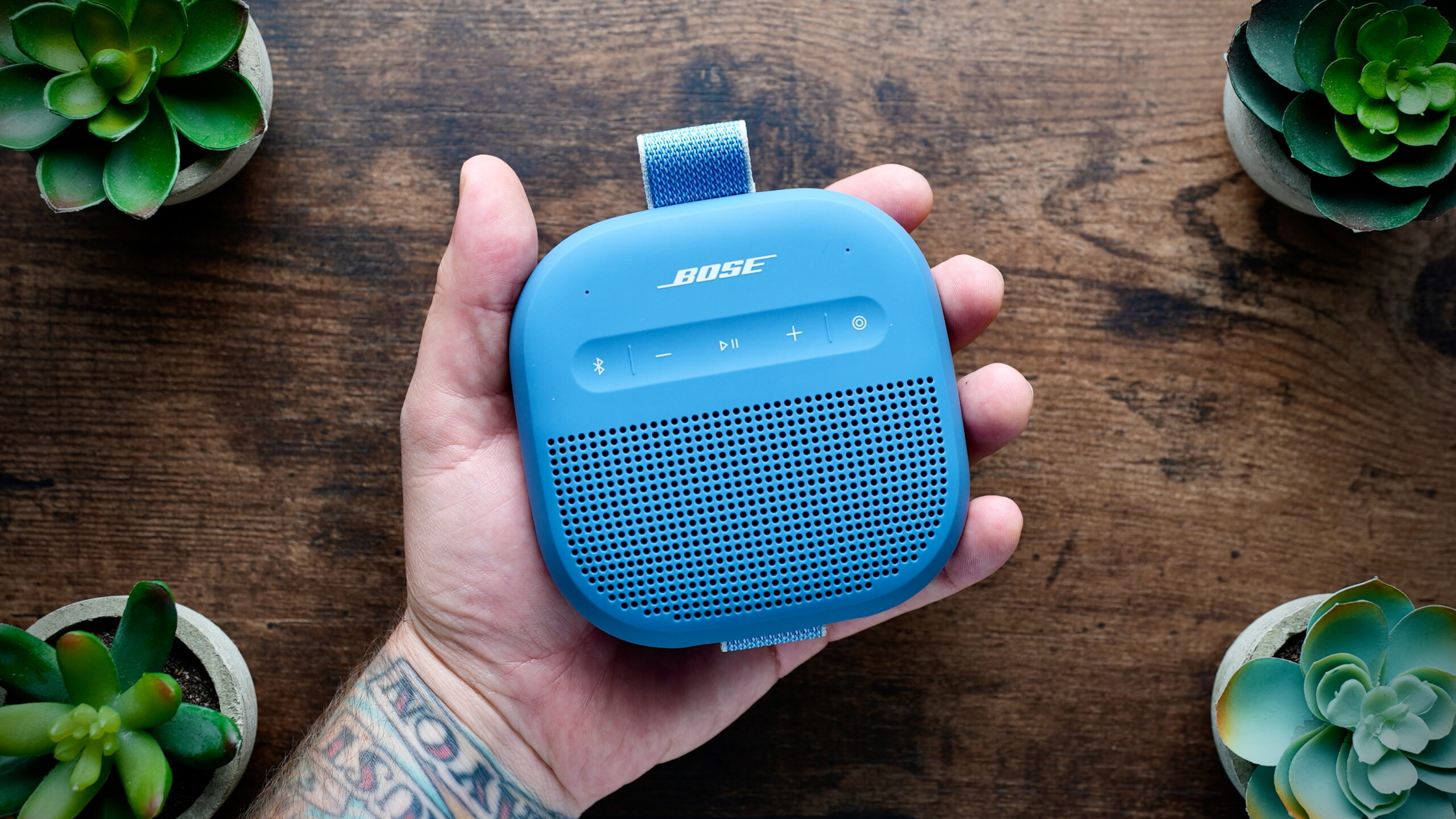
Otherwise, if you want to keep things truly compact, take a look at the Bose SoundLink Micro (2nd Gen). It brings USB-C charging, a new removable fabric strap, and better sound than the original, but it still falls short of the Grip’s low-end response. Think of it as better for pockets, worse for bass. If palm-sized portability or a built-in strap is what you value most, the SoundLink Micro is worth a look. Find one for $129 at Amazon.
Frequently asked questions
Yes. You can use the JBL Grip while charging.
No. The JBL Grip does not have a 3.5mm Aux in.
The JBL Grip is not designed for use with a TV, but technically will work if your TV offers a Bluetooth connection.
The JBL Grip is a mono speaker.
Thank you for being part of our community. Read our Comment Policy before posting.